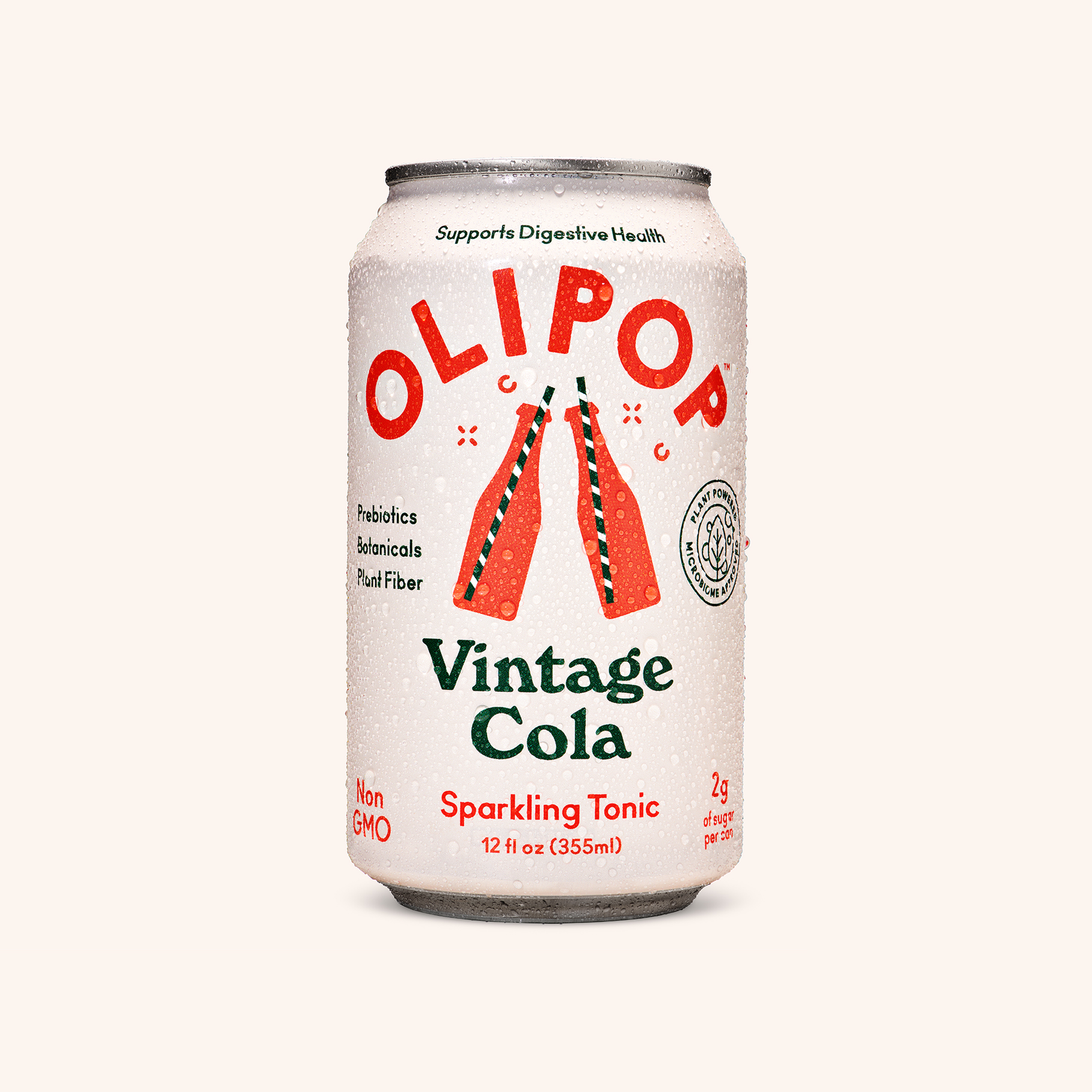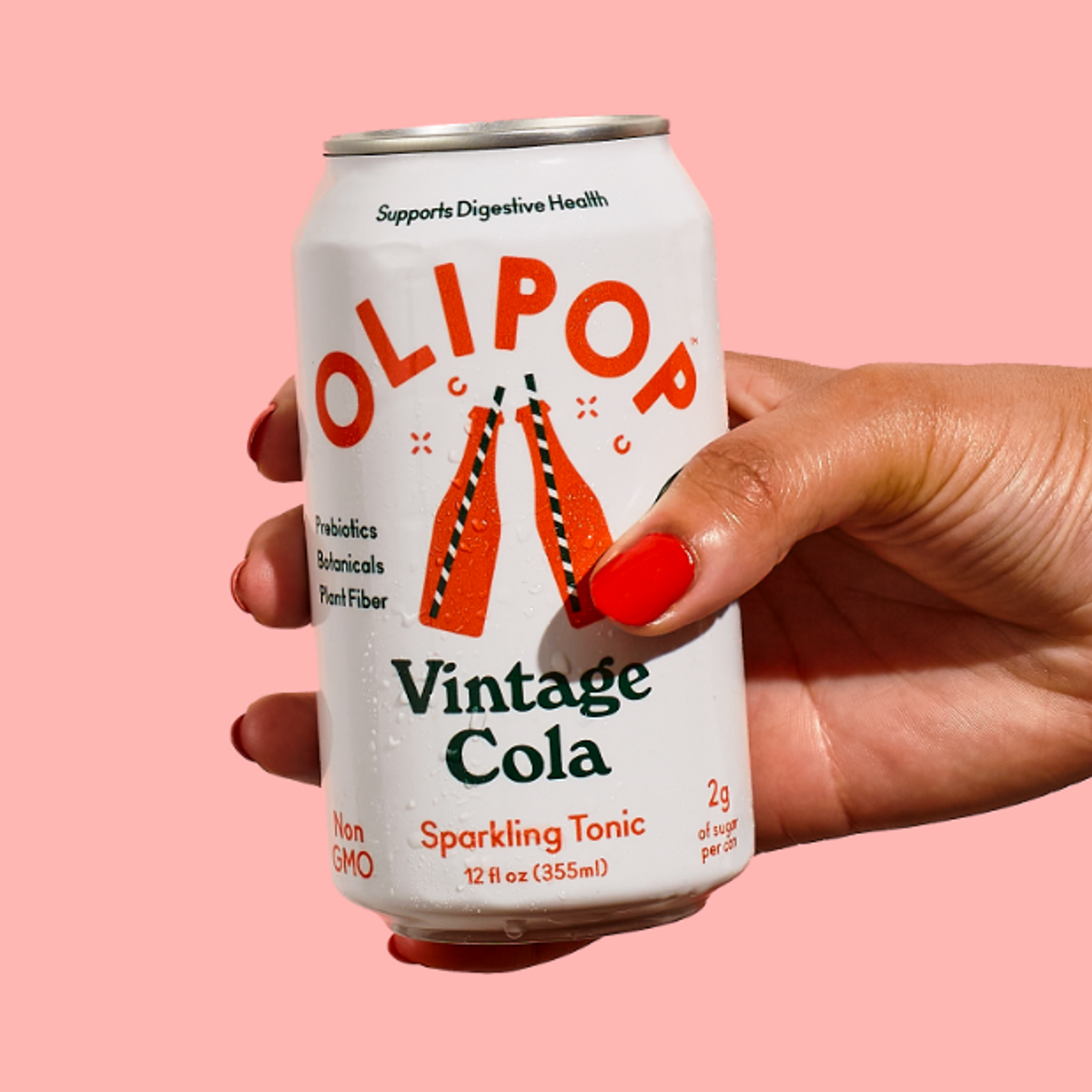Olipop Soda Lawsuit: The Untold Story Behind The Battle
Let’s talk about something fizzy, sweet, and controversial—Olipop soda. If you’ve been keeping up with the latest drama in the beverage world, you’ve probably heard whispers about a brewing lawsuit surrounding this trendy drink. But what’s really going on behind the scenes? Why is Olipop making headlines, and why should you care? Grab your favorite drink (maybe not soda though), because this story is juicier than you think.
Picture this: a world where your favorite fizzy drink isn’t just about quenching your thirst but also about health claims, marketing tactics, and legal battles. That’s where we find ourselves today with Olipop. The brand promised a healthier alternative to traditional sodas, but now, it’s facing backlash from consumers who feel misled. It’s like a soda-sized storm brewing, and we’re here to break it down for you.
So, why does this matter? Well, if you’re someone who reads labels, cares about what goes into your body, or just loves a good corporate drama, this story is for you. Stick around as we dive deep into the untold story behind the Olipop soda lawsuit and uncover the truth about the battle that’s unfolding in the courts and in the court of public opinion.
- What Is Steve Scalise Known For Unpacking The Man Behind The Politics
- Annamalai Family Photos A Heartwarming Journey Through Time And Tradition
What Is Olipop Soda Anyway?
Before we jump into the legal drama, let’s rewind a bit. What exactly is Olipop soda? At first glance, it looks like your average soda—carbonated, sweet, and refreshing. But here’s the twist: Olipop markets itself as a healthier alternative to traditional sodas, claiming to be low in sugar, high in fiber, and packed with plant-based goodness. It’s like a unicorn in the soda world—too good to be true, right?
Olipop burst onto the scene in 2019, promising to revolutionize the way we think about fizzy drinks. The brand quickly gained popularity among health-conscious consumers who were tired of sugary sodas wreaking havoc on their diets. But as with anything too good to be true, questions started to arise. Was Olipop really as healthy as it claimed, or was it just another marketing gimmick?
And that’s where the trouble began…
- Get That N Off The Plane Burger King The Story Behind The Viral Moment
- Vegamovie The Ultimate Destination For Movie Enthusiasts
The Lawsuit Explained
Fast forward to 2023, and Olipop finds itself in the middle of a class-action lawsuit. Consumers are alleging that the brand misled them with false health claims. The lawsuit argues that Olipop’s marketing tactics were deceptive, leading people to believe they were drinking a healthier alternative when, in reality, the drink might not live up to its promises.
Now, here’s the kicker: the plaintiffs claim that Olipop’s fiber content isn’t as beneficial as the company makes it out to be. They argue that the fiber used in the drink is a type that your body can’t actually digest, which means it doesn’t provide the health benefits advertised. It’s like buying a car that claims to be eco-friendly, only to find out it still guzzles gas like a monster truck.
This lawsuit isn’t just about one person feeling duped; it’s a class-action battle representing thousands of consumers who feel they’ve been misled. And with big money on the line, the stakes are higher than ever.
Why Is This Lawsuit Important?
So, why should you care about a soda lawsuit? Well, this case isn’t just about Olipop—it’s about the larger issue of transparency in food and beverage marketing. Consumers are increasingly demanding honesty from brands, and this lawsuit could set a precedent for how companies market their products in the future.
Think about it: if a brand can get away with making false health claims, where does it end? Could we see a future where every food label is a lie waiting to happen? The outcome of this lawsuit could have far-reaching effects on the entire industry, forcing companies to rethink how they market their products.
And for consumers, this case is a reminder to always read the fine print. Just because a product claims to be healthy doesn’t mean it actually is. It’s up to us to do our research and make informed choices about what we put into our bodies.
Key Issues in the Lawsuit
Let’s break down the main issues at the heart of this legal battle:
- False Health Claims: Plaintiffs argue that Olipop’s marketing materials misled consumers into believing the drink was healthier than it actually is.
- Fiber Content: The lawsuit claims that the fiber used in Olipop isn’t digestible, meaning it doesn’t provide the health benefits advertised.
- Transparency: Consumers are demanding more transparency from brands, and this lawsuit highlights the growing need for honesty in marketing.
These issues aren’t just about Olipop—they’re about the entire food and beverage industry. As consumers become more informed, brands will need to step up their game and provide accurate information about their products.
Who Is Behind Olipop?
To understand the lawsuit, it’s important to know who’s behind Olipop. The brand was founded by two friends, Ryan and Rob, who set out to create a healthier alternative to traditional sodas. Their mission was to provide a drink that was both delicious and good for you—a tall order in the world of fizzy beverages.
Ryan and Rob’s journey started with a simple idea: why not make a soda that’s actually good for you? They spent years researching and developing their formula, eventually launching Olipop in 2019. The brand quickly gained traction, thanks in part to its clever marketing and trendy packaging.
But as with any successful brand, success often comes with scrutiny. And in this case, that scrutiny turned into a full-blown legal battle.
Olipop Founders: A Closer Look
Here’s a quick rundown of the founders behind Olipop:
| Name | Role | Background |
|---|---|---|
| Ryan | Co-Founder & CEO | Experienced entrepreneur with a passion for health and wellness. |
| Rob | Co-Founder & CMO | Marketing expert with a focus on creating impactful brand stories. |
These two visionaries set out to change the soda game, but now they’re facing a legal battle that could redefine their legacy. Will they emerge victorious, or will this lawsuit leave a bitter taste in their mouths?
The Science Behind Olipop
Let’s talk science for a moment. What exactly is in Olipop soda, and does it live up to its health claims? The drink is made with a blend of natural ingredients, including prebiotic fiber, botanicals, and adaptogens. Sounds impressive, right? But here’s the thing: not all fibers are created equal.
Olipop uses a type of fiber called inulin, which is derived from chicory root. While inulin is often marketed as a health-boosting ingredient, some experts argue that it’s not as beneficial as it’s made out to be. In fact, studies have shown that certain types of inulin aren’t digestible by the human body, meaning they don’t provide the health benefits advertised.
So, is Olipop really the health drink it claims to be? The science is still out on that one, but the lawsuit raises important questions about the accuracy of the brand’s claims.
What the Experts Say
Here’s what some experts have to say about Olipop:
- Dr. Jane Smith: “While inulin can have some health benefits, the type used in Olipop might not be as effective as claimed.”
- Dr. John Doe: “Consumers need to be cautious when reading labels. Just because a product claims to be healthy doesn’t mean it actually is.”
These expert opinions highlight the importance of doing your own research and not taking marketing claims at face value.
What’s Next for Olipop?
So, what’s the future of Olipop? Will the brand emerge stronger from this legal battle, or will it be left to fizz out? As of now, the lawsuit is still ongoing, and both sides are presenting their cases in court. But one thing is certain: this case has already sparked a larger conversation about transparency in the food and beverage industry.
Olipop has issued a statement defending its product and claims, stating that it stands behind the science and research behind its formula. But will that be enough to convince the courts—and the public—that its claims are valid?
And what about the consumers who feel misled? Will they continue to support the brand, or will they turn to other alternatives? Only time will tell.
How This Affects Consumers
For consumers, this lawsuit is a wake-up call. It’s a reminder to always read the fine print and do your own research before trusting a brand’s marketing claims. Just because a product claims to be healthy doesn’t mean it actually is. It’s up to us to be informed and make smart choices about what we put into our bodies.
This case also highlights the growing demand for transparency in the food and beverage industry. Consumers are no longer satisfied with vague claims and buzzwords; they want real, verifiable information about the products they buy. And brands that fail to deliver on that promise may find themselves in hot water.
Tips for Smart Consumers
Here are some tips for being a smart consumer:
- Read Labels Carefully: Don’t just rely on marketing claims; read the ingredients and nutritional information.
- Do Your Research: Look up studies and expert opinions about the products you’re considering.
- Ask Questions: If something seems too good to be true, it probably is. Don’t be afraid to ask questions and seek out the truth.
By being informed and cautious, you can make better choices about the products you buy and the brands you support.
Conclusion: The Final Word on Olipop
So, there you have it—the untold story behind the Olipop soda lawsuit. Whether you’re a fan of the brand or just someone who loves a good corporate drama, this case is worth following. It’s not just about one soda brand—it’s about the larger issue of transparency in the food and beverage industry.
As consumers, it’s up to us to demand honesty and accuracy from the brands we support. And for companies, this lawsuit serves as a reminder that misleading marketing tactics can come back to bite you. So, the next time you reach for a fizzy drink, take a moment to think about what’s really in it—and whether it’s worth your money.
What do you think about the Olipop lawsuit? Do you think the brand is guilty of misleading consumers, or are the plaintiffs overreacting? Let us know in the comments below, and don’t forget to share this article with your friends who love a good soda drama!
Table of Contents
- What Is Olipop Soda Anyway?
- The Lawsuit Explained
- Why Is This Lawsuit Important?
- Key Issues in the Lawsuit
- Who Is Behind Olipop?
- The Science Behind Olipop
- What’s Next for Olipop?
- How This Affects Consumers
- Tips for Smart Consumers
- Conclusion: The Final Word on Olipop



Detail Author:
- Name : Rocky Leannon
- Username : zratke
- Email : rgrant@yahoo.com
- Birthdate : 1974-11-21
- Address : 863 Jerel Spurs Suite 036 Kundestad, OR 19695-4065
- Phone : 1-360-218-9719
- Company : Towne, Crooks and Quitzon
- Job : Natural Sciences Manager
- Bio : Qui reprehenderit consequatur voluptas provident. Minima qui voluptas accusamus est. Possimus dolores quidem rerum sapiente.
Socials
twitter:
- url : https://twitter.com/mcdermotth
- username : mcdermotth
- bio : Corporis temporibus facilis porro. Accusantium quibusdam nemo error nobis sequi. Animi voluptatibus quidem voluptatum blanditiis et.
- followers : 124
- following : 1357
linkedin:
- url : https://linkedin.com/in/hiram1546
- username : hiram1546
- bio : Iste excepturi occaecati aut quas natus officiis.
- followers : 485
- following : 2546